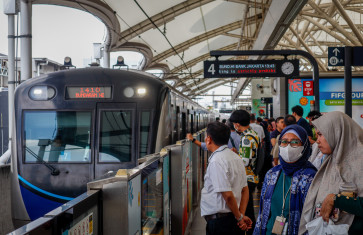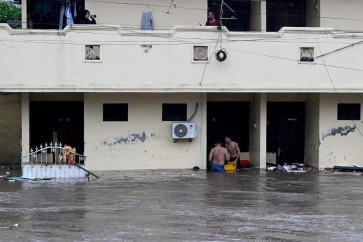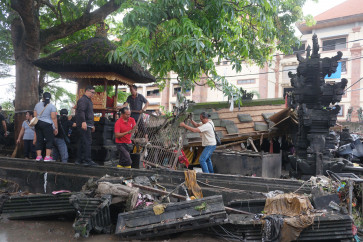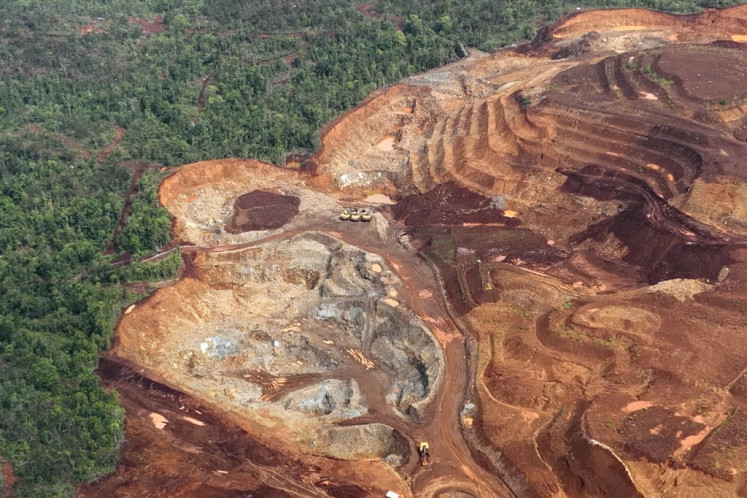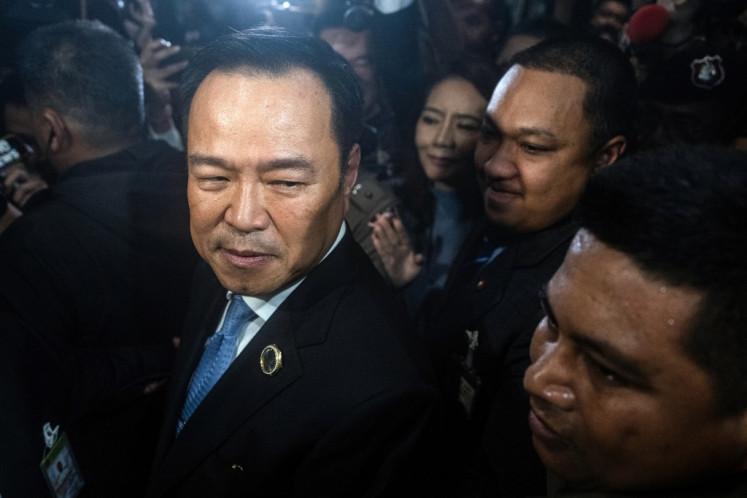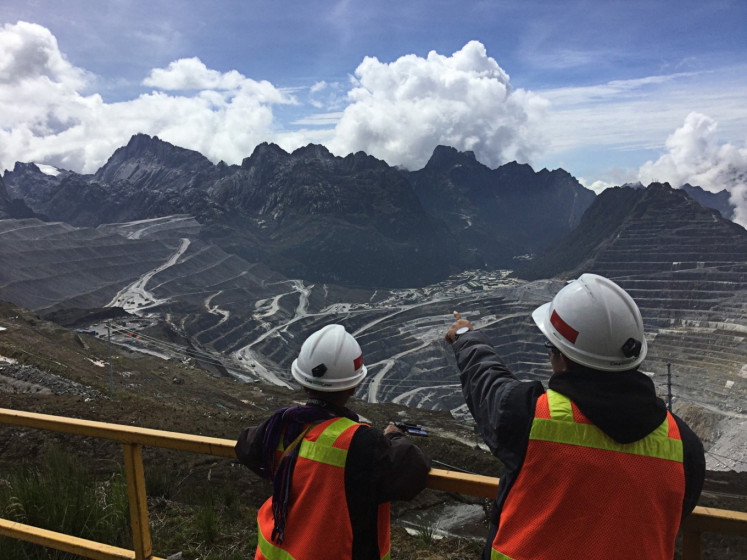Popular Reads
Top Results
Can't find what you're looking for?
View all search resultsPopular Reads
Top Results
Can't find what you're looking for?
View all search resultsClariant to strengthen grip in RI with new factory
Switzerland-based specialty chemical firm Clariant aims to strengthen its grip in the Indonesian market by opening a new plant in Gresik, East Java
Change text size
Gift Premium Articles
to Anyone
S
witzerland-based specialty chemical firm Clariant aims to strengthen its grip in the Indonesian market by opening a new plant in Gresik, East Java.
Located on a roughly 2-hectare plot of land at the Java Integrated Industrial and Port Estate (JIIPE), the new facility will increase its production capacity of bleaching earth by 35 percent in the country.
Bleaching earth is a substance used in the conversion of crude palm oil (CPO) to vegetable oil and Clariant is now the largest producer of the chemical in the country.
Clariant’s expansion has been driven by the rising demand for bleaching earth from the palm oil industry, which the firm estimates as reaching around 300,000 tons a year, all of which has be supplied domestically.
“Indonesia is the biggest palm oil producer in the world, and therefore, it holds a very strategic position for us,” said Gustavo Rodriguez, the head of Clariant for Southeast Asia and Pacific region, in a media briefing after the official launch of the plant on Tuesday.
The new facility also pushes up Clariant’s production capacity of various chemicals to 450,000 tons each year.
In addition to bleaching earth, PT Clariant Indonesia, the local subsidiary of the world’s leading specialty chemical producer, also operates five production facilities in North Sumatra and West Java that make products such as plastic pigment, dye and hair conditioner.
Sales of chemicals and products from the Indonesian unit contributed 30 percent to the parent company’s sales in Southeast Asia and the Pacific region last year. Meanwhile, sales from the region made up 7 percent of its global sales of 5.84 billion Swiss francs (US$5.82 billion) in the past year.
Clariant executive committee Christian Kohlpaintner said that JIIPE was chosen due to the proximity of the site to the seaport, which would help cut logistics costs, in addition to Clariant’s long-term partnership with petroleum and chemical distributor AKR Corporindo, which developed the industrial park.
“We benefit from JIIPE seaport that makes us more cost efficient and improves delivery time to clients in Kalimantan and Sulawesi,” he said in his opening speech.
Apart from selling its products in the domestic market, the Swiss firm also exports them in the Southeast Asia region.
Clariant declined to disclose the investment value of the facility, but according to JIIPE, one square-meter of land costs around Rp 2.2 million (US$164.8) this year.
The Indonesian government welcomed the realization of the investment made by the company as it helped improve the country’s manufacturing sector that had slowed down in the past years.
“This is a very good thing that can boost the local manufacturing industry, especially in specialty chemicals, which we are still weak at. Specialty chemicals have a very high added value that contributes to economic growth,” the Industry Ministry’s director general for chemicals, textiles and miscellaneous industry, Achmad Sigit Dwiwahjono, said during the event on behalf of Industry Minister Airlangga Hartarto.
Swiss Ambassador to Indonesia Yvonne Baumann, who was present during the event, said the investment was a testament to the good relationship between the two countries.
“Swiss’ $4.5 billion investment in the country during 2012 to 2015 has made Indonesia the second most favorite investment destination in Asia after China,” she said, quoting data from Swiss National Bank.
Of the figure, 90 percent of Swiss investment was channeled into the manufacturing sector.
At present, there are 150 Swiss firms operating in Indonesia, employing tens of thousands of Indonesians.


